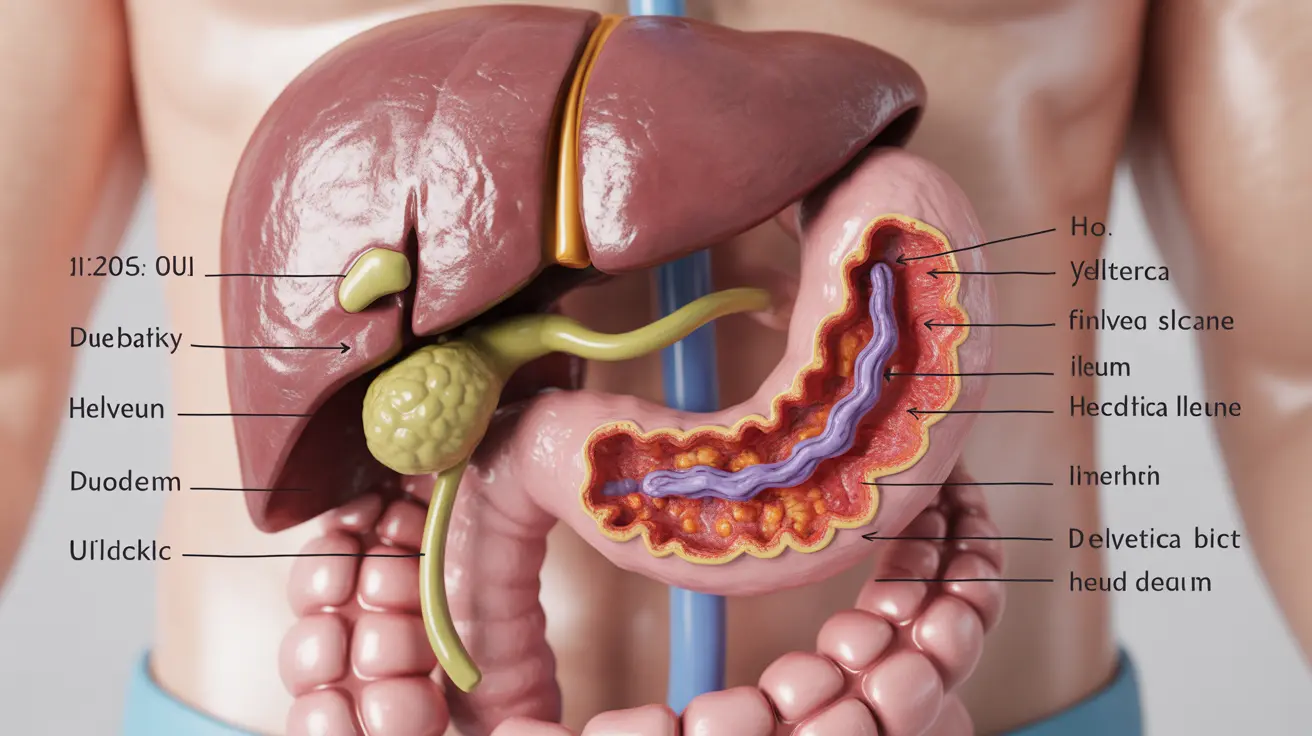Living with Crohn's disease presents various health challenges, and one significant concern is its potential impact on gallbladder health. Research shows that individuals with Crohn's disease face an increased risk of developing gallbladder problems, including gallstones and related complications. Understanding this connection is crucial for better disease management and prevention of additional health issues.
This comprehensive guide explores the relationship between Crohn's disease and gallbladder health, examining why these conditions are linked and what patients can do to protect their health.
The Link Between Crohn's Disease and Gallbladder Problems
Crohn's disease can affect gallbladder health through several mechanisms. The inflammation and malabsorption associated with Crohn's disease can alter bile composition and gallbladder function. Additionally, the location of intestinal inflammation, particularly in the terminal ileum, can interfere with bile acid absorption and metabolism.
Risk Factors and Mechanisms
Several factors contribute to increased gallbladder disease risk in Crohn's patients:
- Altered bile acid metabolism
- Reduced gallbladder motility
- Changes in cholesterol metabolism
- Frequent fasting during disease flares
- Rapid weight changes
- Inflammation affecting bile absorption
Recognizing Gallbladder Disease Symptoms
People with Crohn's disease should be particularly vigilant about symptoms that might indicate gallbladder problems. These symptoms can sometimes overlap with or be masked by Crohn's disease symptoms.
Common Warning Signs
Key symptoms to watch for include:
- Upper right abdominal pain
- Nausea and vomiting
- Fever
- Intolerance to fatty foods
- Jaundice in severe cases
- Unexplained changes in bowel habits
Diagnostic Approaches and Treatment Options
Healthcare providers typically use a combination of diagnostic tools to identify gallbladder issues in Crohn's disease patients. These may include ultrasound imaging, blood tests, and specialized scans to assess gallbladder function and detect potential complications.
Treatment Considerations
Treatment options must be carefully tailored for Crohn's disease patients with gallbladder issues:
- Dietary modifications
- Medication adjustments
- Surgical intervention when necessary
- Coordinated care between gastroenterologists and surgical specialists
Prevention and Management Strategies
While some risk factors cannot be modified, several preventive measures can help reduce the risk of gallbladder complications:
- Maintaining a balanced diet
- Regular physical activity
- Avoiding rapid weight changes
- Staying well-hydrated
- Regular medical monitoring
- Following prescribed treatment plans for Crohn's disease
Frequently Asked Questions
How does Crohn's disease increase the risk of gallbladder disease and gallstones? Crohn's disease increases gallbladder disease risk through altered bile acid metabolism, reduced gallbladder motility, and inflammation affecting the intestinal absorption of bile acids. These factors can lead to gallstone formation and other gallbladder complications.
What are the common symptoms of gallbladder disease in people with Crohn's disease? Common symptoms include upper right abdominal pain, nausea, vomiting, fever, and intolerance to fatty foods. These symptoms may sometimes be confused with Crohn's disease flares.
How is gallbladder disease diagnosed and treated in patients with Crohn's disease? Diagnosis typically involves ultrasound imaging, blood tests, and specialized scans. Treatment options range from dietary modifications to medication adjustments and, when necessary, surgical intervention.
Can Crohn's disease medications affect gallbladder health or contribute to gallstones? Some medications used to treat Crohn's disease can influence gallbladder function and bile composition. Regular monitoring and medication adjustments may be necessary to minimize these effects.
What steps can people with Crohn's disease take to prevent or reduce the risk of gallbladder complications? Prevention strategies include maintaining a healthy diet, regular exercise, avoiding rapid weight changes, staying hydrated, and following prescribed treatment plans for Crohn's disease management.




